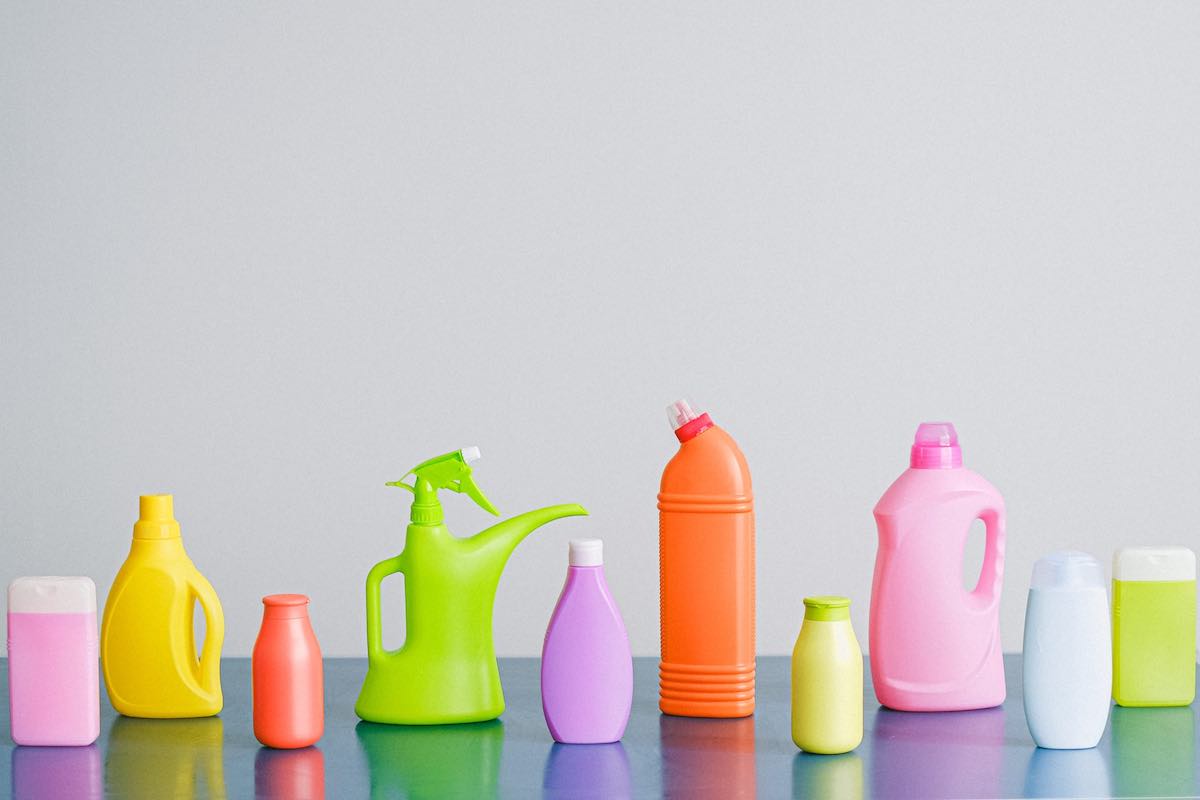Creating your own cleaning business can be a rewarding experience, but it’s important to make sure you’re prepared for everything that comes with it. This includes starting a cleaning business checklist.
Below is a comprehensive list that you can use as your cleaning business “starter kit”. It includes everything you need to do before launch, so read on to learn more!
Starting a cleaning business: The ultimate checklist
These are the seven steps you have to take before you can start your cleaning business:
1. Determine the types of cleaning services you want to provide
When planning your business, the first thing to do is decide what type of services you’d like to provide. This will narrow down the supplies and equipment you need and determine what you should look for in future employees.
A residential cleaning business will likely only need inexpensive and basic cleaning supplies. In contrast, a company that offers specialized services for commercial establishments (say, high-rise window cleaning) requires more expensive equipment and specialized training for workers.
Below is a breakdown of the two categories cleaning services are divided into.
Residential cleaning
Residential cleaning service involves cleaning houses, apartments, condo units, and other domestic dwellings. The most common types of residential cleaning solutions are:
- General home cleaning.
- Deep cleaning and spring cleaning.
- Upholstery and carpet cleaning.
- Basic window cleaning.
- Chimney sweeping.
- Pressure washing.
- Pool cleaning.
Commercial cleaning services

Image credit: Priscilla Du Preez via Unsplash
You may be surprised by how different commercial cleaning is from residential cleaning. For one, the working hours are very different.
Home cleaners often work during the day or standard business hours. Commercial cleaners, on the other hand, usually work after business hours to not disrupt office staff.
Customer expectations are also very different for these types of cleaning services.
Residential clients may be more detail-oriented, especially if they are particular about their space. But when it comes to office cleaning, you don’t have to worry so much about the small details.
As mentioned above, the kinds of cleaning supplies and equipment you need also vary. For example, if you work for a hospital, you need medical-grade disinfectants. On the other hand, large offices that need weekly cleaning require industrial-grade vacuum cleaners and floor buffers.
Finally, you’ll notice a stark difference in cash flow.
With a residential customer base, you can charge an hourly rate and expect to be paid at the end of each cleaning session. And if you provide consistent service for a commercial client, you’re likely to be paid monthly.
Here are some commercial cleaning services you can offer:
- Office cleaning.
- Janitorial cleaning.
- Window washing.
- Medical cleaning.
- Sports cleaning.
- Sanitization and disinfection.
- Post-construction cleanup.
2. Write your business plan
Starting a cleaning business checklist would be amiss without a business plan. Think of this as a blueprint of what you want your business to look like.
Writing a business plan helps cleaning business owners define goals and the scope of work. It ensures you understand the cleaning industry and find market opportunities to scale your business.
Without going into too much detail, here’s a summary of what your business plan should include.
Executive summary
This short section (usually one or two pages long) includes your business’ vision and mission, a description of your services, a summary of the market and your competition, and your competitive advantages. Essentially, this part serves as an outline for your entire business plan.
Company description
This is where you’ll describe your business in more detail. Your company description should include:
- A registered cleaning business name (bonus points if it’s catchy).
- Your business address.
- The names of the key people and roles involved in the business.
- Your company history.
- The nature of your business.
Management structure
Part of starting a cleaning business checklist is nailing down the structure of your soon-to-be business.
Will you be operating your business as a sole proprietorship, a partnership, or a corporation? Who are the key members of your business? And what are the percent ownership and level of involvement of each owner?
Think this through and then include these details in your business plan.
Market analysis
Before starting a cleaning business checklist, it’s critical to do competitive research. Get to know what:
- The cleaning industry is like.
- The market is like in your prospective service area.
- The themes and trends are.
- You can do better than your competitors.
This will give you an edge and help you carve out a place in the market.
List of services
This is where you talk about the services your cleaning business will offer. This is the part where you figure out your pricing model and reflect on what makes your business different from (or even better) than your competition.
Consider these questions:
- Will you charge clients an hourly rate or a fixed fee?
- Will you bill based on the number of cleaning staff or per square footage?
- Will you sell bundled services at a discounted rate?
Pro-tip: If the subject of pricing cleaning services confuses you, this guide on how much a commercial cleaning business makes will help you.
Sales and marketing plan
Starting a cleaning business checklist is never complete without thinking of how to make money.
Once you know where your strengths lie, figure out how to market your business to your potential customers. Here are some of the things you can include in this section:
- Your company logo.
- Your branding guidelines (What colors, fonts, and imagery to use on your business cards, flyers, posters, website, etc.).
Your marketing plan should use the vast social media and digital marketing tools at your disposal. Most customers expect businesses to have a well-designed website, a Facebook and Instagram page, and to be registered in at least one of the following directories:
- Google My Business.
- LinkedIn.
- Yelp For Business.
- Local.com
Financial analysis and projections

Image credit: Avel Chuklanov via Unsplash
Starting a cleaning business checklist includes asking yourself the following questions:
- How much funding will you need in the next five years?
- How will you use your capital?
- Where will you get funding?
Be sure to detail how your funds will be used and make a list of the cleaning supplies, equipment, cleaning solutions, office rental costs, company vehicles, employees’ salaries, and bills your operation will have.
Finally, you have to include your projections for your financial outlook for the next five years. Some experts suggest using monthly and quarterly forecasts for your first year.
3. Register and insure your cleaning business
Before running your business, you need to get permits, a license, and insurance. Here’s a list of some of the things you absolutely must have before you can operate legally:
- Employee Identification Number: Also known as an EIN, businesses need a Federal Tax Identification Number for tax filing.
- Vendor’s license: This is your primary business registration license that renews annually.
- Doing business as (DBA) license: This license allows you to conduct business with a different name than your legal name. This is renewed every five years.
- General liability insurance: This protects your cleaning business if a client tries to sue you for any injuries or damages that happen while you conduct business with them.
- Workers’ compensation insurance: This type of insurance covers any medical bills your staff has to pay if they encounter an accident or injury in the workplace.
At this point, it’s also good to get a lawyer and an accountant to help you sort all these requirements.
4. Find the right cleaning equipment and supplies
The right supplies can make or break your cleaning business. Cheap equipment can cost you hundreds of dollars in repairs while using an effective cleaning agent could impress clients enough to get you customer referrals!
Here’s a short breakdown of some of the essential cleaning supplies and equipment you’ll need to get started:
Ideal cleaning supplies checklist
- Mop, bucket, and washable mop pads.
- Duster, broom, and dustpan.
- Cleaning brushes and scrubbers.
- Microfiber cloth and rubber gloves.
- Garbage bags.
- Toilet brushes.
Cleaning products checklist

Image credit: Anna Shvets via Pexels
At the minimum, you will need a multi-purpose cleaner, bathroom disinfectant cleaner, kitchen disinfectant cleaner, dishwashing liquid, and glass cleaner. Other things you need when starting a cleaning business checklist are:
- Carpet shampoo.
- A descaling agent.
- Floor cleaner.
- Laundry detergent.
- Wood cleaning solution.
Cleaning equipment checklist
- Vacuum cleaner.
- Handheld vacuum.
- Carpet cleaner.
- Floor waxing machine.
Other important tools
- Cleaning caddy.
- Respirators.
- Company vehicle.
5. Hire additional employees
You may not hire employees in the early days of your business, but it’s still good to know when and how to hire people.
One clear indicator that you need more staff is when your customer service falters. When you miss appointments, are unable to answer customer inquiries, or disappoint customers with your service quality — it’s time to grow your team.
Some of the roles you’ll likely need to fill as your business expands are:
- Office manager.
- Office assistant.
- Cleaning staff.
- Marketing and sales representatives.
- Customer service representatives.
- An accountant.
And that’s just the tip of the iceberg! Check out this article for how to hire workers and grow your cleaning business.
6. Advertise your cleaning business
Starting a cleaning business checklist means thinking about getting more customers. The first step here is to advertise your business.
After all, you can’t expect to make appointments if people don’t know about you in the first place. Here are some of the first steps you can take towards successfully advertising your business.
Build your brand
Branding is all about having a cohesive story about your business. You want to convey who you are and what services you provide through your brand name, logo, website, etc.
Don’t know where to start with branding? A good first step is to hire a professional to design a uniquely yours logo. From there, you can build your brand around the themes and feel of your logo.
Create a website
In 2022, you can’t have a successful business without a website.
Your website is your online home base — a place where potential customers can learn about you, communicate with you, and even book an appointment.
With a strong SEO strategy, your website is a great digital marketing tool to rank your website high on search engines to create brand awareness and drive sales.
Sign up for social media
Like a website, an active social media page is also vital to making it big. With 2.89 billion active users and the ability to create targeted ads, Facebook is your best bet.
You can also advertise the traditional way, with flyers, billboards, and TV spots. But bear in mind that these can cost you a small fortune.
For small businesses starting, digital marketing is a much more budget-friendly approach.
7. Invest in tools and resources that improve your business
Starting a cleaning business checklist is an excellent first step but if you want to grow quickly, cleaning service software is the way to go. This business solution is designed to help cleaning professionals:
- Automate key workflows to maximize productivity.
- Instantly schedule, route, and dispatch jobs.
- Handle day-to-day operations with ease.
- Track employee hours for accounting and payroll.
CRMs or customer relationship managers serve as a centralized hub for customers’ data, transaction history, contact information, messages, and other essential details. These help your business provide fast and consistent customer service.
There are also field service software solutions made for businesses that send workers out on fieldwork. Field service software can help you book and schedule appointments, track cleaning crews’ locations and hours while out in the field, monitor inventory, and create invoices from one central hub.
How to start a commercial cleaning business
Starting a commercial cleaning business requires strategic planning and execution. Here’s a step-by-step guide to help you kickstart your commercial cleaning business up and running:
1. Market Research: Identify your target market, understand client needs, and analyze competition. This research guides your business strategy and helps you stand out in the commercial cleaning industry.
2. Business Plan: Develop a comprehensive plan outlining your goals, services, pricing strategy, and financial projections. A well-thought-out plan serves as a roadmap for your business and enhances your chances of success.
3. Legal Compliance: Register your business, obtain necessary licenses, and secure insurance. Ensuring legal compliance builds trust with clients and protects your business and reputation.
4. Equipment and Supplies: Invest in quality cleaning equipment and supplies necessary for efficient service delivery. Reliable tools are essential for providing top-notch commercial cleaning services.
5. Marketing and Branding: Create a strong brand identity, develop effective marketing strategies, and establish an online presence. These efforts are crucial for attracting clients and growing your commercial cleaning business.
Cleaning services FAQs
- How much money do I need to start a cleaning business?
- How much does a cleaning service owner make?
- How do you charge for house cleaning?
How much money do I need to start a cleaning business?
You have to invest $2,000 to $10,000 to get a cleaning business off the ground. This should cover business permits, licenses, insurance, supplies and equipment, initial labor, and advertising costs.
How much does a cleaning service owner make?
According to ZipRecruiter, the average salary of a cleaning business owner in the United States is $55,949 a year or $27 an hour.
How do you charge for house cleaning?
Cleaning professionals can choose from several methods, including:
- Per square footage.
- Per hour.
- Per room.
- A flat rate.
Then, you can look up how much your competition charges with your chosen method to give yourself a baseline.
Closing thoughts on starting a cleaning business checklist
Congratulations, you’re now ready to start your own cleaning business! It’s not an easy task, but it can be enriching. We hope the information in this blog post has been helpful and that you are feeling ready to take on the challenge. Good luck!
Start automating your daily workflows with Method:Field Services!
Image credit: Sablinstanislav via Adobe Stock






